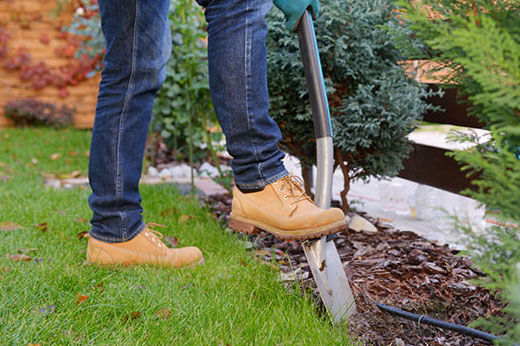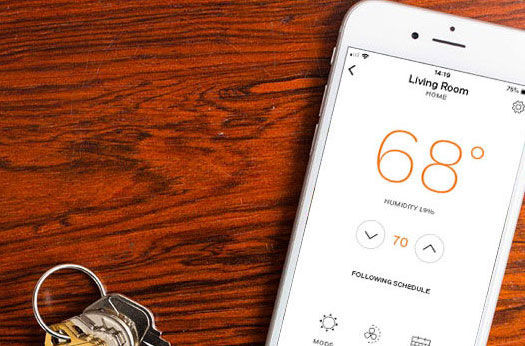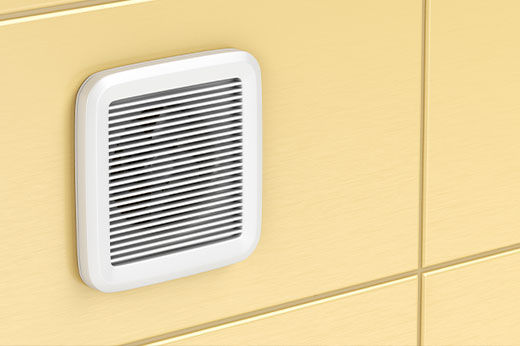How Heaters and Humidifiers Work Together to Combat Dry Winter Air
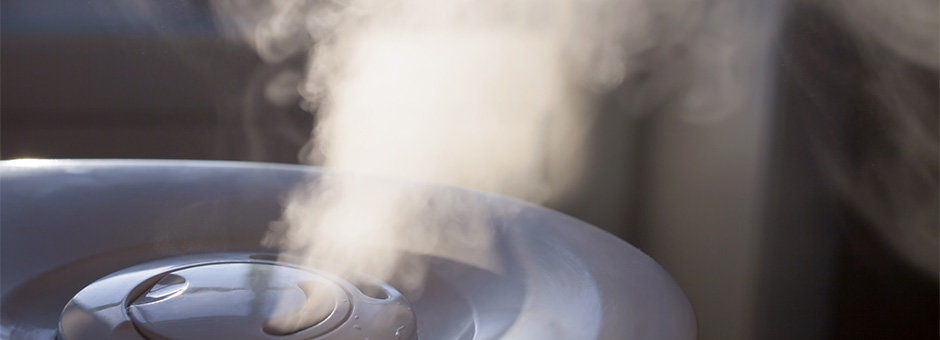
When winter arrives, the air gets colder, and everything seems to get drier. You may notice that your hair stands on end from static, your skin gets itchy, and you wake up with a scratchy throat. It’s not your imagination!
Keeping your home warm is only half the battle during the colder months. You also need to keep the air moist, which means balancing the work of the heater with a humidifier! It's especially important if you're using a space heater.
Here’s how heaters and humidifiers can work together in the winter months to keep your home more comfortable and healthy.
Importance of Heaters and Humidifiers
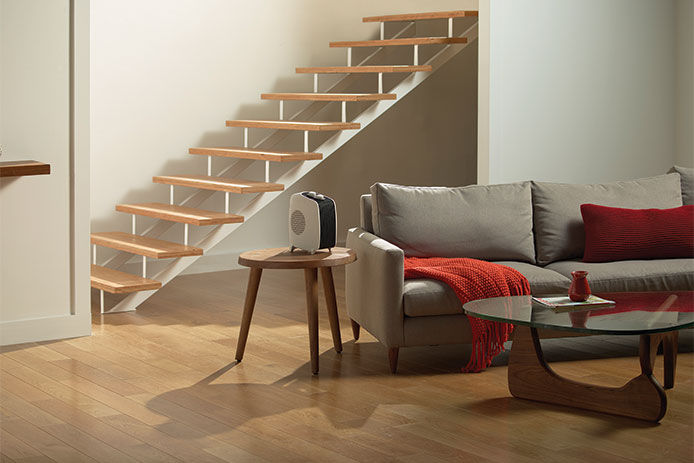
Everyone is familiar with heaters, whether you heat your home with a furnace, boiler system, or space heater. Most people who live in houses have a furnace these days. However, multi-family units and apartments may still be heated by a boiler system or by using individual electric space heaters.
If you have an older home, family members who can't quite agree on the same temperature, or if you work in an office with different temperature preferences, you might rely on a heater to keep individual spaces comfortable. Space heaters are also ideal for garages, workshops, and studios—small spaces where you may not have an HVAC system.
Some people are less familiar with humidifiers. How do humidifiers work? A humidifier is a small appliance that performs three basic steps:
- First, it pulls in the air from the environment.
- Then, it mixes the air with water vapor from the reservoir contained in the humidifiers.
- Finally, it expels the moistened air back into the environment.
There are many different varieties of humidifiers—evaporative, warm mist, and ultrasonic. All perform similar tasks a little differently but with the same basic effect. Humidifiers keep home temperatures stable. They also help the atmosphere in your home retain moisture, reducing dryness. The added humidity can help combat some of the adverse effects of dry winter air, like itchy skin, static, and respiratory issues.
You can use a humidifier and a heater in the same room to bring the space to a comfortable temperature.
Do I Need a Humidifier in the Winter?
Some HVAC systems have built-in humidifiers and humidity control, but many do not. If you’re curious about the humidity levels in your home, you can perform a simple test with a glass of ice water. Set a glass of water with several ice cubes in the room you want to test. After five minutes, you should see condensation forming on the outside of the glass—a lot of condensation indicates that the humidity in your home is good. Little or no condensation indicates that you might have dry air.
The other way to gauge humidity in your home is to judge how you feel. Do you feel like the air is dry and uncomfortable? Does your hair stand on end when you take off your sweater? Does the temperature in the room seem inconsistent? Do family members wake up with dry, irritated throats or nasal passages? These are all signs you might need a humidifier.
Humidifiers can help with dry air. They are particularly useful for children who may be more sensitive to dryness in the atmosphere. In addition, asthma and allergy sufferers can find relief with humidifiers, as they help reduce the dust and allergens that may be floating in the air. Those with dry skin, breathing problems, and sensitive noses and throats can also find that a humidifier makes their home more comfortable.
Adding humidity to your home can even be good for the furniture! When certain types of wood and other materials become too dry, they can crack and degrade. While too much humidity can cause mildew, warping, and moisture damage, dry air may also have negative effects on the items in your home. Your goal should be to find a happy, comfortable balance.
You can use a humidifier in the winter to keep your house comfortable. In the summer, the air tends to be more humid, so there's less need to use a humidifier. However, in some spaces (like offices) with recycled air, a humidifier makes a difference any time of year. Allergy sufferers and those with respiratory problems may also find relief with a humidifier at night, even outside of the winter months.
Should I Use a Humidifier and a Heater at the Same Time?

So, should you use a humidifier if you use a space heater? Should you use a humidifier and heater at the same time? Yes, it can be a good idea. A humidifier helps moisturize the heated air released from the heater to help keep optimal moisture and temperature levels. Using a humidifier won’t reduce the effectiveness of your heater, nor will it reduce the temperature. In fact, a humidifier can actually make your home feel more temperate and comfortable.
Why would you need both a heater and a humidifier? The air that blows out of your heater is dry—as the air moves and is heated, moisture evaporates, so the air becomes dryer. By using a heater to increase the room’s temperature and adding water vapor to the air with a humidifier, you can combat the dryness, making the room more comfortable.
Using a humidifier with your heater benefits both you and your wallet. You might notice a reduction in uncomfortable symptoms and breathing issues. Vapor-rich air actually “feels” warmer at lower temperatures, and a more consistently warm home will help your heating bills too.
Choosing the Best Humidifier and Heater for Your Home

As you get your home ready for winter, a humidifier is a great addition. It can make a significant difference to everyone’s comfort levels.
Explore the humidifier options we offer at Do It Best:
Combine the humidifier with an electric heater to get a comfortable temperature in each room of your home. Most space heaters include guidelines to help you choose the appropriate size for your space. Be sure to follow all instructions and keep any electric heater clear of furniture and decorative items. Even though most space heaters are very safe for indoor use, it's essential to keep in mind that they are a heat source, so take safety measures.
This winter, avoid the misery of dry cold air by selecting a space heater and humidifier to keep the room temperature comfortable and consistent.
While do-it-yourself projects can be fun and fulfilling, there is always a potential for personal injury or property damage. We strongly suggest that any project beyond your abilities be left to licensed professionals such as electricians, plumbers, and carpenters. Any action you take upon the information on this website is strictly at your own risk, and we assume no responsibility or liability for the contents of this article.
